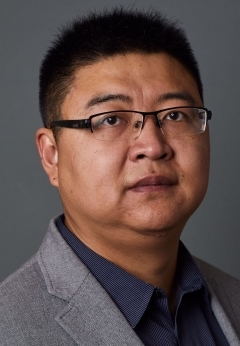Dr. Fei Wang, an assistant professor of healthcare policy and research at Weill Cornell Medicine, received a Faculty Early Career Development Award from the National Science Foundation for his work developing computer models used to predict disease.
The National Science Foundation, which is dedicated to advancing the progress of science by funding research proposals, awards this prize annually to support the research projects and science outreach efforts of untenured junior faculty. The award comes with a minimum of $500,000 in funding, provided over the course of five years. Dr. Wang, along with 11 investigators from Cornell’s Ithaca campus, received their awards in March of this year.

Dr. Fei Wang
“Receiving this prestigious award has been a huge encouragement for me,” Dr. Wang said. “This means that my approach to this research topic is getting support from other researchers in our field. Hopefully, in the future, the models I create will be useful in routine healthcare practice.”
The award will help support Dr. Wang’s research on analyzing ordered sequences that have timestamps associated with their events (called discrete time event sequences or DTES), such as electronic health records, with deep learning approaches.
Deep learning involves computational models that try to mimic the working mechanisms of human brains. “While the human brain is full of neurons, deep learning machines are made up of computational units that act like artificial neurons,” Dr. Wang said. “These collections of artificial neurons are then used to predict things.”
Deep learning has demonstrated great potential in detecting cancer from medical images or disease states from electronic health records, the latter of which is the focus of Dr. Wang’s research.
Still, deep learning models are often treated like a black box. “The model can predict very effectively, but we don't know why,” Dr. Wang said. “For physicians who want to utilize deep learning models, it is important to answer that question.” Using the NSF’s funding, Dr. Wang will build models that make predictions and show how the decisions were made.
The funding will also go toward education outreach, as Dr. Wang plans to teach the next generation of students, from high school to Ph.D. level, about machine learning. “I really want to open the eyes of students to this field,” he said.

